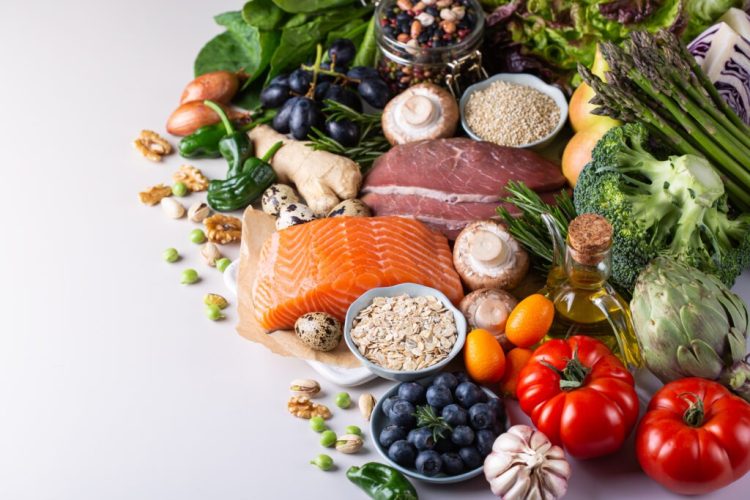We spend countless hours optimizing our work routines, testing productivity hacks, and seeking the perfect work-life balance, all in pursuit of peak mental performance. Yet, we often overlook the most fundamental factor influencing our cognitive function: the food on our plates. The brain, an incredibly metabolically active organ accounting for about 20% of the body’s energy expenditure, is acutely sensitive to what we eat. Every morsel of food is a complex set of chemical instructions that can either enhance or impair neural communication, influence neurotransmitter production, and alter the very structure of our brain cells. The emerging field of nutritional psychiatry confirms what many have intuitively felt: brain fog, poor memory, lack of focus, and low mood are not just states of mind; they are often direct reflections of our nutritional status. The concept of “brain food” moves beyond a catchy phrase into the realm of biological necessity. By understanding the specific nutrients that serve as the building blocks for a healthy, resilient brain, we can make deliberate choices that sharpen our focus, stabilize our mood, fortify our memory, and protect our cognitive health for years to come. This is not about a short-term dietary fix but about cultivating a long-term nutritional strategy for a clearer, sharper, and more vibrant mind.
The connection between the gut and the brain, the gut-brain axis, provides the biological pathway for this food-mood relationship. The gut microbiome, the community of trillions of bacteria residing in our intestines, produces a vast array of neurochemicals that the brain uses to regulate physiological and mental processes, including mood. In fact, about 95% of the body’s serotonin, a key neurotransmitter responsible for feelings of well-being and happiness, is produced in the gut. When we nourish this microbial community with the right nutrients, we support the production of these crucial chemicals. Conversely, a diet lacking in these essential compounds can lead to inflammation, oxidative stress, and impaired energy production in the brain, manifesting as the mental fatigue and lack of clarity so many experience. Therefore, choosing brain-boosting foods is essentially choosing to build a healthy gut environment, which in turn constructs a foundation for optimal cognitive function and mental clarity.
Key Nutrients: The Building Blocks of a Sharp Mind
To support the brain’s intricate functions, certain nutrients play starring roles. These compounds act as fuel, protection, and repair crews for our neurons, ensuring efficient communication and long-term health.
1. Omega-3 Fatty Acids: The Structural Engineers
The brain is nearly 60% fat, and a significant portion of that is DHA (docosahexaenoic acid), a specific type of omega-3 fatty acid. DHA is a primary structural component of neuronal cells, essential for the integrity and fluidity of cell membranes. This fluidity is critical for how brain cells communicate with each other. Omega-3s, particularly EPA (eicosapentaenoic acid), also possess powerful anti-inflammatory properties, helping to quench the fires of chronic inflammation that can damage brain cells and impede cognitive function. A diet rich in omega-3s is consistently linked to improved memory, faster learning, and a reduced risk of cognitive decline.
2. Antioxidants: The Cellular Bodyguards
The brain’s high energy demand makes it particularly vulnerable to oxidative stress—a process where harmful molecules called free radicals damage cells. This damage, over time, contributes to brain aging and neurodegenerative diseases. Antioxidants are compounds that neutralize these free radicals, acting as a defense system for the brain. Flavonoids, a large class of antioxidants found in plants, are especially potent. They improve blood flow to the brain, stimulate the growth of new neurons, and enhance the connections between them. This translates to better memory, learning, and overall cognitive performance.
3. B Vitamins: The Energy Converters
The B vitamin family—including folate (B9), B12, B6, and others—are indispensable cofactors in the brain’s energy production line. They are essential for converting dietary nutrients into adenosine triphosphate (ATP), the primary energy currency of every cell, including neurons. Without adequate B vitamins, the brain simply cannot produce enough energy, leading to mental fatigue, fog, and poor concentration. Furthermore, B vitamins play a critical role in synthesizing neurotransmitters like serotonin and dopamine, which regulate mood. They also help break down homocysteine, an amino acid that, at high levels, is associated with an increased risk of cognitive impairment and vascular problems in the brain.
Top 5 “Brain Foods” to Incorporate Now
While many whole foods offer cognitive benefits, these five stand out for their dense concentration of the key nutrients discussed above.
1. Walnuts: Shaped remarkably like a brain, walnuts are a true powerhouse. They are one of the richest plant-based sources of alpha-linolenic acid (ALA), a type of omega-3 that the body can convert into DHA. They are also packed with antioxidants, including vitamin E and polyphenols, which protect brain cells from oxidative damage. Studies have shown that walnut consumption is linked to improved memory, faster processing speed, and greater mental flexibility.
2. Blueberries: Often dubbed “brain berries,” these tiny fruits are bursting with flavonoids, specifically anthocyanins, which give them their deep blue color. These compounds accumulate in the brain and have been shown to enhance signaling between brain cells, reduce inflammation, and improve plasticity—the brain’s ability to adapt and form new connections. Regular consumption has been associated with delays in brain aging and improvements in memory.

3. Fatty Fish (like Salmon, Mackerel, and Sardines): This is the most direct source of the pre-formed EPA and DHA omega-3s your brain craves. Eating fatty fish regularly provides the raw materials needed to build and maintain brain cell structure. Numerous studies correlate higher fish intake with larger brain volume in old age (more grey matter) and a significantly reduced risk of Alzheimer’s disease and age-related cognitive decline.
4. Leafy Greens (like Kale, Spinach, and Broccoli): These vegetables are foundational to a brain-healthy diet. They are exceptional sources of brain-protective antioxidants like vitamin K, lutein, and beta-carotene. They are also rich in folate, the crucial B vitamin that helps slow cognitive decline and is vital for neurotransmitter production. The high levels of glucosinolates in greens like broccoli help reduce the breakdown of acetylcholine, a neurotransmitter essential for the central nervous system.
5. Turmeric: The deep yellow spice that gives curry its color contains an active compound called curcumin. Curcumin is a potent anti-inflammatory and antioxidant that can directly cross the blood-brain barrier. It has been shown to help clear the amyloid plaques that are a hallmark of Alzheimer’s disease and to boost levels of Brain-Derived Neurotrophic Factor (BDNF), a growth hormone that functions in the brain to support the survival of existing neurons and encourage the growth of new ones. For best absorption, pair turmeric with black pepper.
A Sample Day of Eating for Cognitive Support
Putting this knowledge into practice is simpler than it seems. Here’s what a day of eating for mental clarity could look like:
- Breakfast: A brain-boosting smoothie. Blend 1 cup of spinach (B vitamins, antioxidants), 1/2 cup frozen blueberries (antioxidants), 1/2 banana, 1 tablespoon of chia seeds (Omega-3 ALA), 1 scoop of protein powder, and unsweetened almond milk.
- Lunch: A large salad with 4 oz of grilled salmon (Omega-3 EPA/DHA) on a bed of mixed greens (folate, antioxidants), cherry tomatoes, avocado (healthy fats), and a handful of walnuts (Omega-3 ALA, antioxidants). Dress with olive oil and lemon juice.
- Afternoon Snack: Full-fat Greek yogurt topped with a few walnuts and a sprinkle of turmeric. The fat in the yogurt aids in the absorption of curcumin.
- Dinner: A turmeric-spiced lentil and vegetable curry (with black pepper!) served with a side of quinoa. Lentils are an excellent source of B vitamins and plant-based protein.
- Hydration: Sipping on green tea throughout the day provides a small amount of caffeine for focus alongside a powerful array of antioxidants.
Your Call to Action: Listen to Your Body
The journey to better brain health through nutrition is highly individual. While the science points to these foods and nutrients as universally beneficial, your own body will give you the best feedback.
We’d love to hear from you: What is one food or meal that you feel gives you a genuine, noticeable boost in mental clarity and focus? Share your personal “brain food” in the comments to help inspire others on their journey to a sharper mind.

































